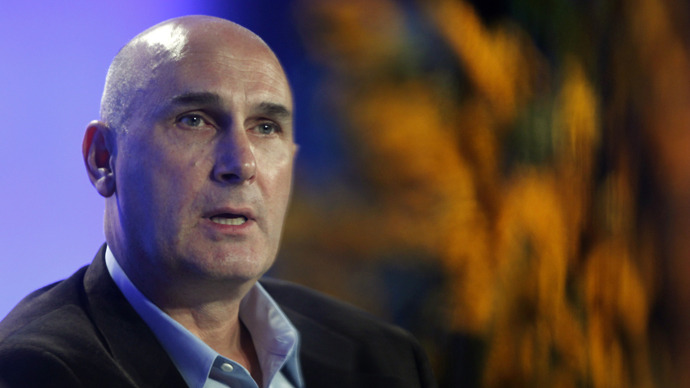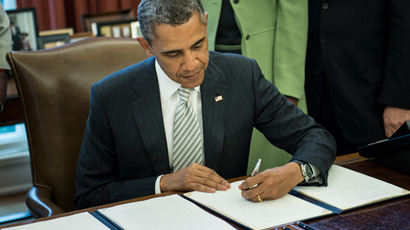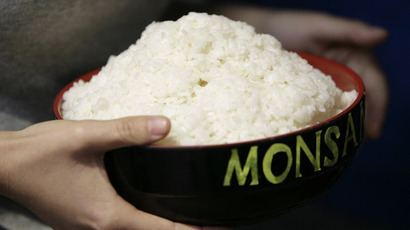Monsanto CEO trashes company’s opponents over ‘elitism’

The chairman and CEO of Monsanto Co. condemned opponents of his major biotech corporation by accusing them of 'reverse elitism' being spread through social media.
Just days before a major international demonstration to protest Monsanto is scheduled to occur around the globe, CEO Hugh Grant told Bloomberg this week that critics of his company are fueling anti-GMO sentiment by capitalizing on an increased public interest in how their food is produced and pushing that agenda through social media sites, such as Facebook and Twitter.
Anti-Monsanto advocates — like the ones planning to protest in 36 countries later this month — say they are opposed to, among other items, the company’s habit of heralding genetically altered crops as a solution to third-world poverty by putting profits above possible health risks. Lab-made crops that are resistant to certain chemicals and conditions are the bread and butter of Monsanto, but critics are worried that the company isn’t weighing the full impact of what spreading GMO crops could do to the environment and agriculture sector. Additionally, Monsanto’s legal habits of driving small-time farmers bankrupt over alleged patent infringement has not made them many friends within America’s traditional agriculture sector.
Just last week, the US Department of Agriculture set up a serious roadblock in Monsanto’s way by ordering further assessments on a number of GMO crops they want to market that can sustain high concentrations of chemicals used as herbicides that can be toxic in large doses. Speaking to Bloomberg this week, Grant said the USDA’s decision won’t be much of a setback, in his opinion, and added that campaigns to belittle his company are often unfounded or the result of misunderstood disinformation.
Charles Benbrook, a research professor at Washington State University’s Center for Sustaining Agriculture and Natural Resources, told Bloomberg, “Most of the people that become motivated to engage the political issues have become convinced that going down the road of genetically engineered foods is not the way to meet the needs of a food insecure population.”
According to Grant, those critics aren’t giving his company’s take on the situation the light of day.
“I’d feel a whole lot better if it was marinated a little on where is that extra chicken going to come from or who is going to grow the new bushel,” Grant said. Instead, he said Monsanto opponents are ruining the opportunity to feed the world using technological advances.
“There is this strange kind of reverse elitism: If I’m going to do this, then everything else shouldn’t exist,” Grant told Bloomberg at Monsanto’s St. Louis headquarters this week. “There is space in the supermarket shelf for all of us.”
“And the sad piece of this is, it ends up either or,” Grant said. “So you get conventional agriculture or broad scale or however you define it, and organic. I think we’re going to look back on this period and say, ‘How on earth did that ever become the fight that it became.’”
Monsanto protests on six contents are scheduled to take place on May 25 as part of an international day of demonstration. Meanwhile, Monsanto has ended up embroiled in yet another controversy, this time after State Department cables released by WikiLeaks showed that the government lobbied foreign nations on behalf of the GMO kings. Monsanto’s influence over the US government has been questioned previously after ties were publicly disclosed between the company and a number of Washington institutions, including the White House and the Supreme Court of the United States.














